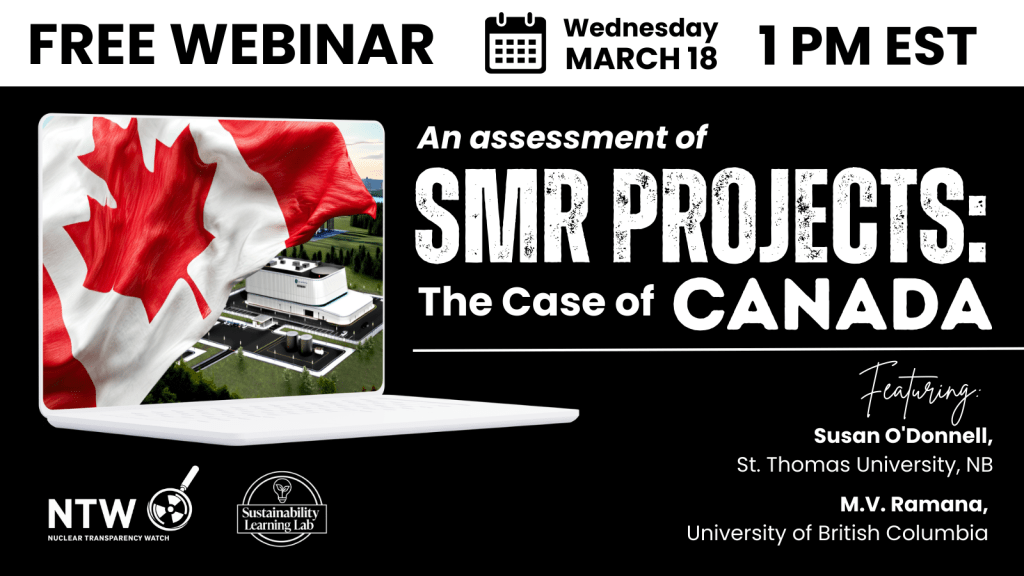An Anxious Europe Ponders Nuclear Weapons
To acquire nuclear weapons, European states would have to withdraw from the NPT which would, no doubt, undermine the international rules-based order that they wish to preserve.
Australian Institute of International Affairs, 26 FEB 2024, By Jasper Hufschmidt Morse
After comments made by the US presidential candidate, Donald Trump, some Europeans are considering the possibility of acquiring nuclear weapons. They should think again.
On 10 February, former United States President Donald Trump recounted a conversation with an unnamed European counterpart in which he stated that he “would not protect” them from a possible Russian attack because they failed to allocate two percent of their gross domestic product to defence, and thus fell short of North Atlantic Treaty Organization (NATO) spending targets. Such delinquency would lead Trump to “encourage [Russia] to do whatever the hell they want.”
Given Trump is the probable Republican candidate at the election in November, and currently polling ahead of incumbent President Joe Biden, these comments have triggered concern among European leaders, including German Foreign Minister Annalena Baerbock, Polish Defence Minister Wladyslaw Kosiniak-Kamysz, as well as NATO Secretary General Jens Stoltenberg. These concerns were exacerbated on 9 February when Danish Defence Minister Troels Lund Poulsen warned that Russia might militarily challenge NATO’s mutual defence article within the next three to five years, considering “new knowledge.” Some are now calling for the expedited integration of European defence capabilities to the point of acquiring nuclear weapons. This conversation was initiated by European Union (EU) parliamentary vice president Katarina Barley who perceives a joint nuclear deterrent as part of Europe’s path toward to an eventual joint EU army. Her fellow social democrat, former German foreign minister Sigmar Gabriel concurs, as does German Finance Minister Christian Lindner. However, others – such as chancellor Olaf Scholz, Defence Minister Boris Pistorius, or Marie-Agnes Strack-Zimmermann, who chairs Germany’s parliamentary defence committee – deem a European nuclear option “unrealistic.” According to political scientist Karl-Heinz Kamp, “debate about European nuclear weapons is a very German debate.” Nonetheless, non-Germans have also chimed in, including the chair of the EU Military Committee Robert Brieger – who argues in favour of European nuclear weapons – and Stoltenberg, who opposes them.
Until recently, discussion of a European nuclear deterrent was unthinkable. Current debate fluctuates between proposals for joint EU nuclear procurement, merging existing capabilities, and individual European states acquiring nuclear weapons. Indeed, there are many barriers to all of these options, including the Nuclear Non-Proliferation Treaty (NPT), and the ongoing stationing of American nuclear warheads on European soil.
One suggestion might propose that the two existing European nuclear powers, namely the United Kingdom and France, could increase their stockpiles and integrate them into a joint framework. However, this is also unrealistic as the cost of these two powers expanding their stockpile would be exorbitant. For instance, Britain is already projected to spend 34 percent of its military budget on maintaining its existing nuclear arsenal. Moreover, it is unlikely that the UK would participate in an EU nuclear weapons program post-Brexit.
European states would do well to consider Australia’s pursuit of nuclear-powered submarines through the AUKUS agreement to inform their own ongoing debate. While these submarines will not carry nuclear warheads, regional powers such as Indonesia did question AUKUS’ legitimacy, considering Australia’s commitment to non-proliferation. Certainly, the outright pursuit of nuclear warheads by the EU would be legitimately challenged in the same way. To acquire nuclear weapons, European states would have to withdraw from the NPT which would, no doubt, undermine the international rules-based order that they wish to preserve.
Furthermore, it would be hypocritical of Europe to insist on non-proliferation, for instance toward Iran through the Joint Comprehensive Plan of Action (JPCOA) or other states which might wish to acquire nuclear weapons, such as Saudi Arabia or South Korea, but then become a proliferator itself. This would set a dangerous precedent, potentially perceived as a “go ahead” by other states who wish to acquire nuclear weapons.
Similarly, it is questionable whether the US would tolerate nuclear proliferation in Europe. Certainly, the US has the means to prevent the pursuit of nuclear weapons, as seen in 2009 and 2010 when it allegedly employed the Stuxnet computer virus to sabotage Iranian enrichment centrifuges. Even if the US were to abstain from sabotaging European efforts, it would nonetheless constitute a rupture in the transatlantic alliance. ………………………………………………… more https://www.internationalaffairs.org.au/australianoutlook/an-anxious-europe-ponders-nuclear-weapons/
No comments yet.
-
Archives
- February 2026 (256)
- January 2026 (308)
- December 2025 (358)
- November 2025 (359)
- October 2025 (376)
- September 2025 (258)
- August 2025 (319)
- July 2025 (230)
- June 2025 (348)
- May 2025 (261)
- April 2025 (305)
- March 2025 (319)
-
Categories
- 1
- 1 NUCLEAR ISSUES
- business and costs
- climate change
- culture and arts
- ENERGY
- environment
- health
- history
- indigenous issues
- Legal
- marketing of nuclear
- media
- opposition to nuclear
- PERSONAL STORIES
- politics
- politics international
- Religion and ethics
- safety
- secrets,lies and civil liberties
- spinbuster
- technology
- Uranium
- wastes
- weapons and war
- Women
- 2 WORLD
- ACTION
- AFRICA
- Atrocities
- AUSTRALIA
- Christina's notes
- Christina's themes
- culture and arts
- Events
- Fuk 2022
- Fuk 2023
- Fukushima 2017
- Fukushima 2018
- fukushima 2019
- Fukushima 2020
- Fukushima 2021
- general
- global warming
- Humour (God we need it)
- Nuclear
- RARE EARTHS
- Reference
- resources – print
- Resources -audiovicual
- Weekly Newsletter
- World
- World Nuclear
- YouTube
-
RSS
Entries RSS
Comments RSS


Leave a comment